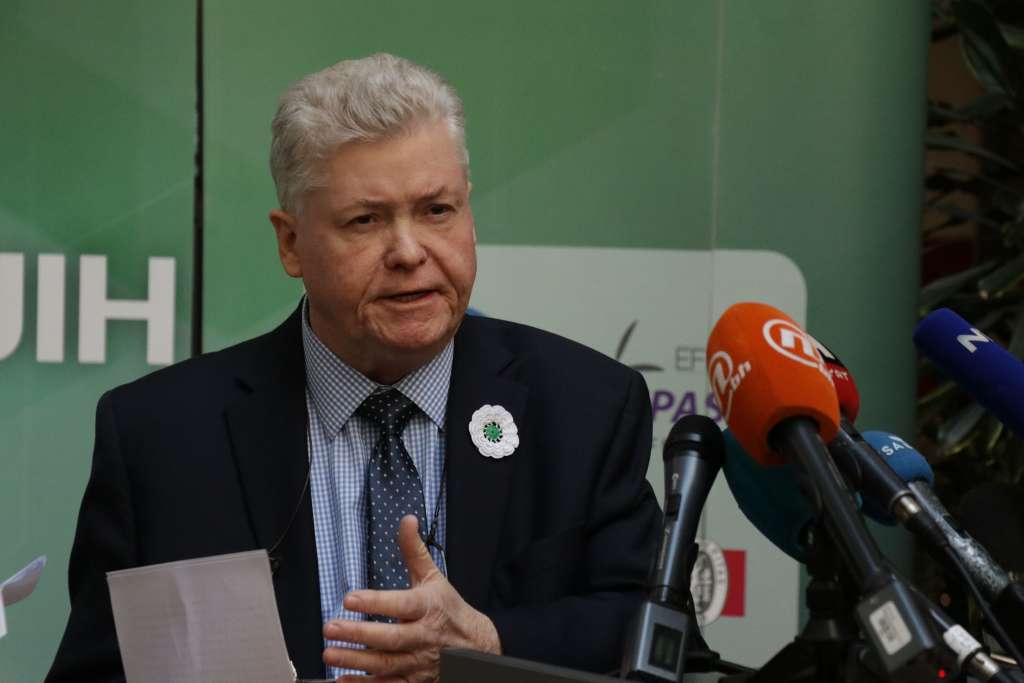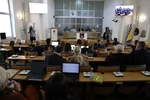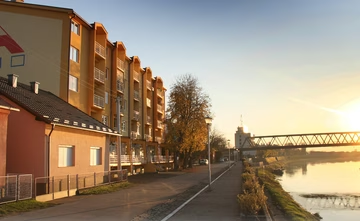Working group for BiH calls for protection of human rights: Will Bosnia uphold or undermine democratic values?

The Working Group for Bosnia and Herzegovina has sent a letter to Assistant Secretary James O'Brien, urging U.S. support for the European Court of Human Rights ruling on Bosnia's electoral reform. High Representative's actions threaten to reverse key human rights progress.
Read the entire letter:
"We, the Working Group for Bosnia and Herzegovina, comprised of genocide survivors and advocates, formally request your attention to the recent actions of Christian Schmidt, the High Representative in Bosnia and Herzegovina. Mr. Schmidt has intervened, with the apparent support of the U.S. Ambassador to Bosnia and Herzegovina, in an inappropriate attempt to reverse the judgment of the European Court of Human Rights (ECHR) in the case of Kovačević v. Bosnia and Herzegovina.
In the Kovačević case, the Court found that due to the "combination of territorial and ethnic conditions," the complainant could not vote for the candidate of his choice for Presidency of Bosnia and Herzegovina and House of Peoples of Bosnia and Herzegovina. These restrictions represented "discriminatory treatment contrary to Article 1 of Protocol no. 12," and the Court found that the current electoral system in Bosnia reinforces "ethnic divisions in the country and undermines the democratic system." The Kovačević case concerns the right to vote as a pillar of democracy.
The judgment in the Kovačević case (2023) was consistent with the Court’s previous findings that the Constitution of Bosnia and Herzegovina is in violation of fundamental human rights outlined by the European Convention on Human Rights.
The Constitution of Bosnia and Herzegovina affords the right to run for the highest political office in the country, or to run for election to the House of Peoples, exclusively to members of three so-called constituent peoples’ groups: Bosniaks, Croats, and Serbs. In the case of Sejdić-Finci v. Bosnia and Herzegovina (2009), the Court found that the exclusion of Roma and Jews from standing for elections to those offices is "discriminatory" and constitutes a violation of the European Convention on Human Rights. The Court reasoned that while the concept of "constituent peoples" may have seemed necessary "to end a brutal conflict marked by genocide," "discrimination based solely on a person's race cannot be objectively justified in today's democratic society."
Similarly, if one does not declare oneself to be a member of one of the three constituent groups, one is ineligible to stand for election to said offices. In the case of Zornić v. Bosnia and Herzegovina (2014), the Court judged that such ineligibility was discriminatory. The Court insisted that "more than eighteen years after the end of the tragic conflict, there can no longer be any reason to retain the challenged constitutional provisions." The Court expected democratic arrangements to be made without "further delay." The Court insisted that every citizen of Bosnia and Herzegovina has the right to run in elections for the Presidency and the House of Peoples without discrimination based on ethnicity.
Given the consistent nature of these judgments, we suggest that rather than intervene in an effort to challenge the judgment in the Kovačević case, the High Representative should be implementing the judgments of the ECHR in order to advance the cause of human rights, democracy, and the rule of law in Bosnia. Failure to implement the judgments of the Court not only delays needed democratic and constitutional reforms but also appeases ethno-nationalist interests and reinforces ethnic divisions—divisions that could well lead to future conflict.
We would be grateful if, under your leadership, the United States of America would support the ECHR’s expectation that Bosnia and Herzegovina’s transition to a democratic society in which human rights and the rule of law are respected and observed. Such democratic and constitutional reforms are fundamental to Bosnia and Herzegovina’s accession to the European Union. In that regard, it would be important for the United States of America, as a member of the Steering Board of the Peace Implementation Council, as well as other Steering Board members, to advise the High Representative to withdraw from participation in the case of Kovačević v. Bosnia and Herzegovina."
Kakvo je tvoje mišljenje o ovome?
Učestvuj u diskusiji ili pročitaj komentare





 Srbija
Srbija
 Hrvatska
Hrvatska
 Slovenija
Slovenija



























































